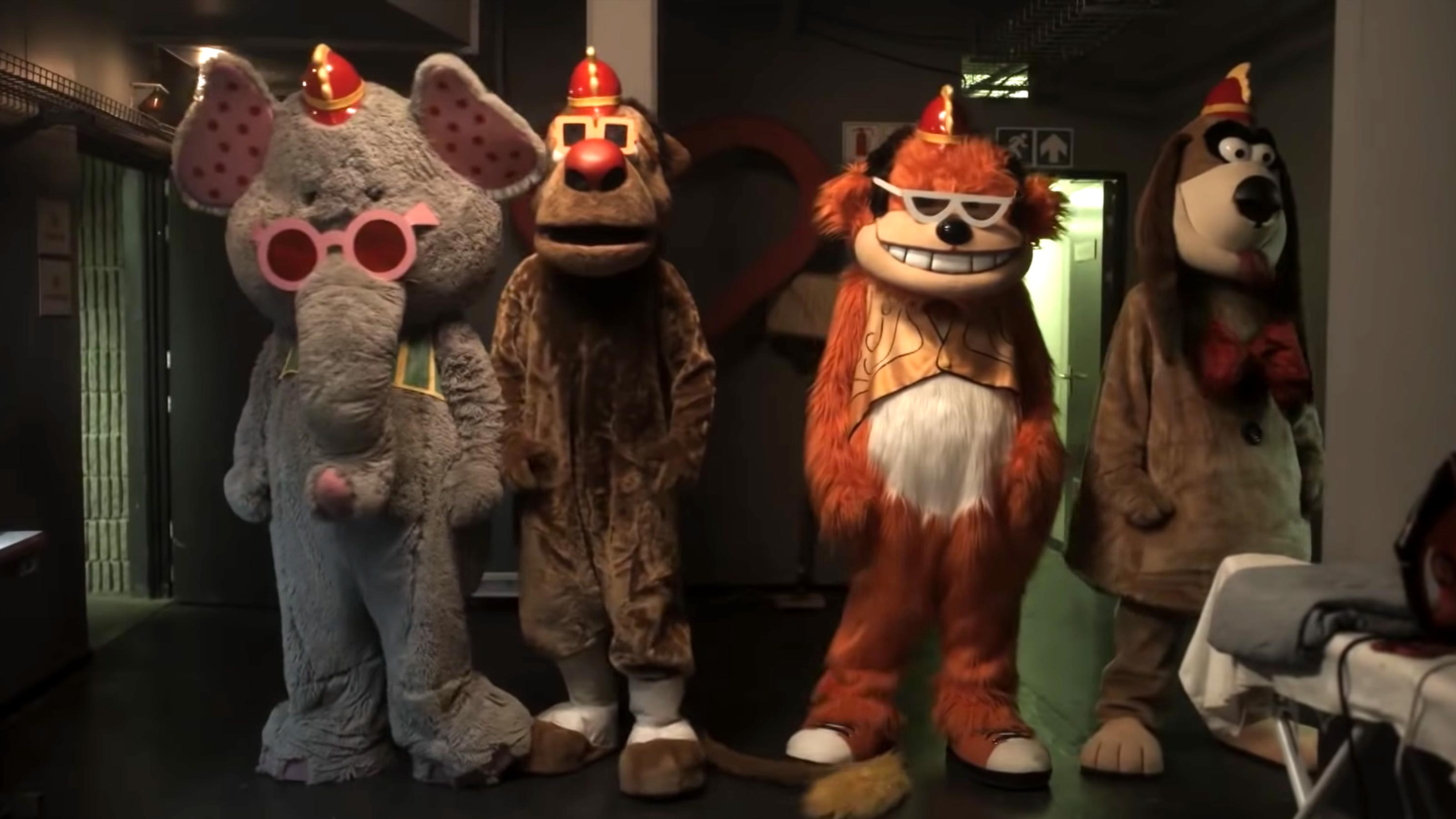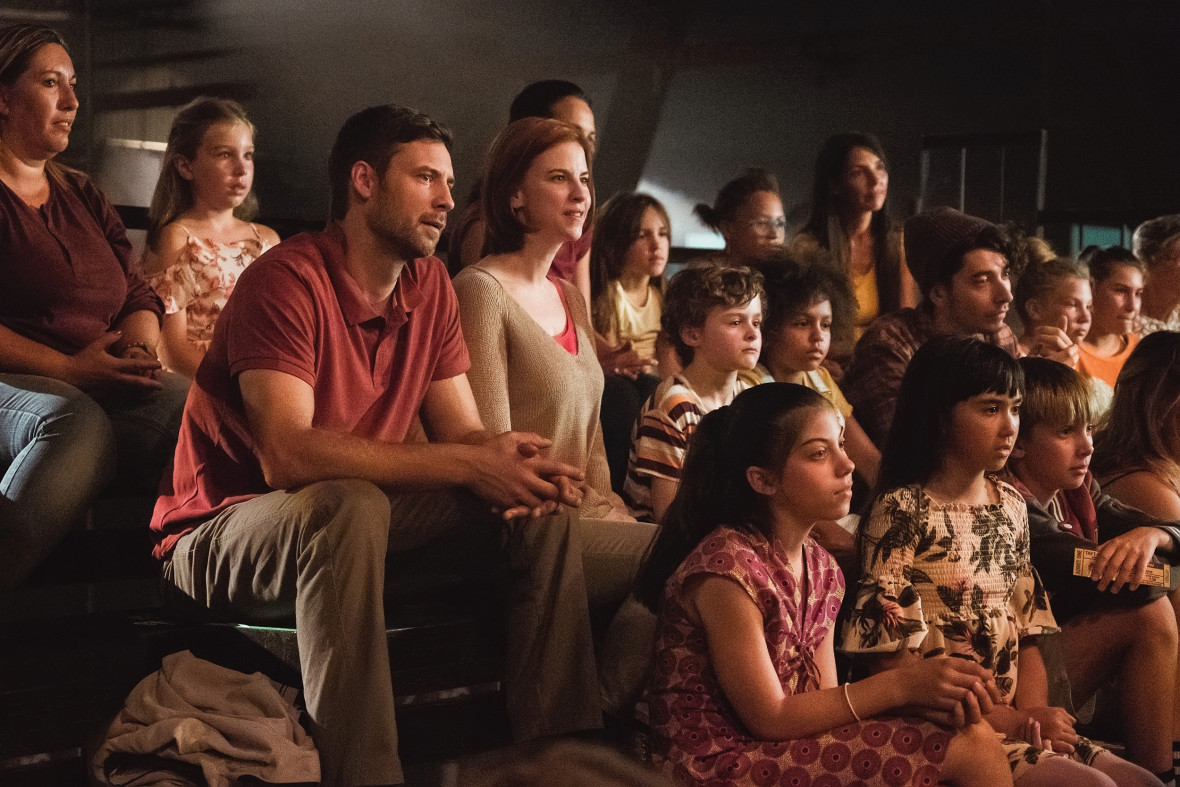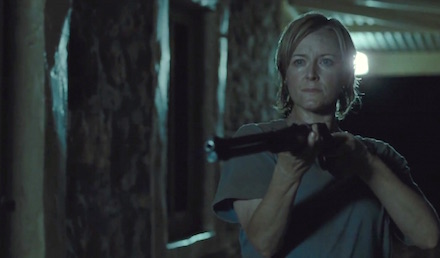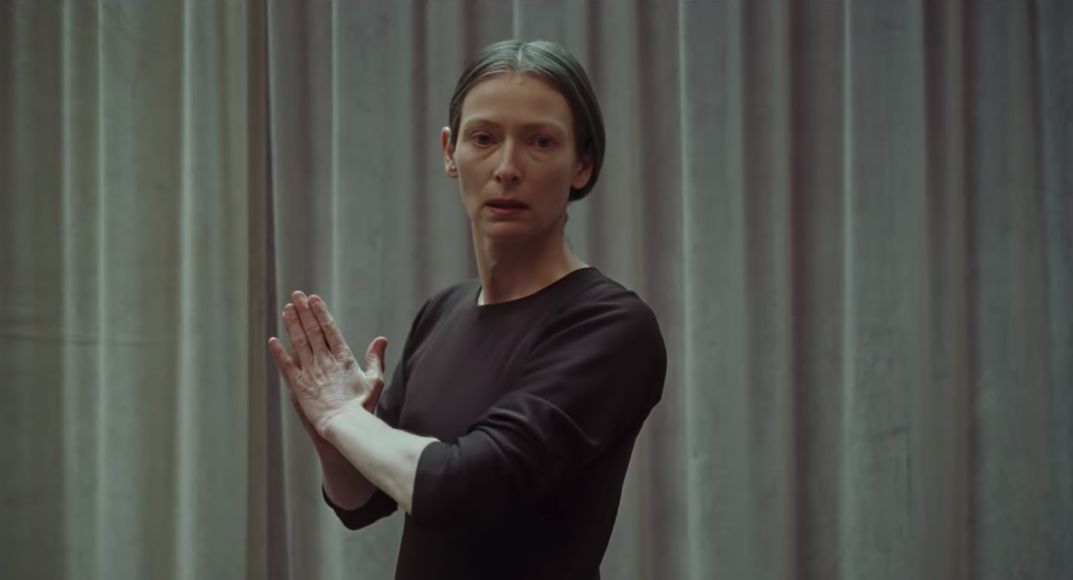THE FACELESS MAN
 Friday, January 10, 2020 at 3:28PM
Friday, January 10, 2020 at 3:28PM Stars: Sophie Turling, Lucas Pittaway, Andy McPhee, Albert Goikhman, Brendan Bacon, Daniel reader, Daniel Facciolo, Lorin Kauffeld, Martin Astifo, Sunny S. Walia, Tom Vogel, Dirk Faller, Damian Oehme, Dave Beamish and Roger Ward.
Writer/Director: James Di Martino
Rating: ★ ★ ★

Exhibiting all the pros and cons of a truly unhinged independent film vision, writer/director James Di Martino allows his film-nerd subconscious to run wild with his first feature, The Faceless Man. If it didn’t propel forward with such a can’t-look-away energy and nightmarish sense of the macabre, you might side with one character when she ponders, direct to camera, “Is this a joke?”
From the De Palma-esque single-take opening tracking shot (a father/daughter hospital scene that plays far more seriously than anything to follow), Di Martino ticks off references to his favourite filmmakers like he’s renting weeklies from his local video store. The most generic beats are in the establishment of his teen protagonists, five average nobodies who rent a pretty nice country homestead. Most central to the zigzag plotting is Emily (Sophie Thurling, giving her all), a cancer survivor who carries with her a darkness that manifests as the clawed, disfigured monster of the title (its reveal a jump-scare highlight of the film).
Such a premise is enough for most first-time directors, but Di Martino decides that while he has the cameras, he might as well have a crack at a stereotypical Tarantino/Ritchie criminal subplot, too. Seems the kids have purloined a case of top-tier narcotics that mobster Viktor Nov (Albert Goikhman, channelling 80s-era Steven Berkoff) wants back. He and his henchman arrive in the hamlet all guns blazing, only to find the local townspeople have their own anti-drug/pro-violence way-of-life.

It sounds nuts, and it largely is. But there’s a good deal of fun to be had in rummaging through the grab bag of references. If you look hard (hell, even if you don’t), you’ll find none-to-subtle nods to No Country for Old Men, Pulp Fiction, Reservoir Dogs, Scarface, Psycho, Scream, Get Out, the Elm Street films, even Home Alone; directorial styles echoed include those of Nicholas Windig Refn and giallo greats like Bava and Argento. The presence of Aussie acting giant Roger Ward instantly conjures the memory of Ozploitation classics Mad Max and Turkey Shoot and places The Faceless Man in the company of those fearless films from the Oz industry’s 10BA days.
Di Martino has been open about his battle with cancer, and it can be deduced that his love for film played a significant part in his recovery. So passionately does he homage the cult films of his generation, it is easy to forgive the often jagged scene-to-scene transitions. Tonally, the film hurtles from eccentric small town piss-takes (embodied by he-man biker ‘Barry the C**t’, played by a very funny Daniel Reader) to shocking acts of violence (a rape/murder sequence is truly disturbing). It is in Thurling’s performance that Di Martino the writer finds an ally who provides much-needed stability; her handling of his take on a survivor’s mix of anxiety and determination rings particularly true.
No doubt at all that The Faceless Man is a wildly indulgent work; the scale of Di Martino’s ambitious, convoluted vision leaves his own level of craft, that ability to keep his narrative manageable, in its wake. Yet it is that degree of unbridled daring to which the midnight-movie crowd, who gobble up such displays of all-or-nothing genre storytelling, will gravitate. The gore, giggles and film-buff fun that Di Martino delivers oozes ‘cult film’ cred from frame 1.
 Australian film,
Australian film,  Independent,
Independent,  horror
horror 

















